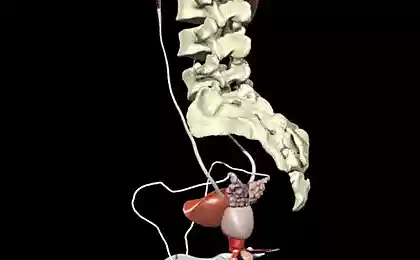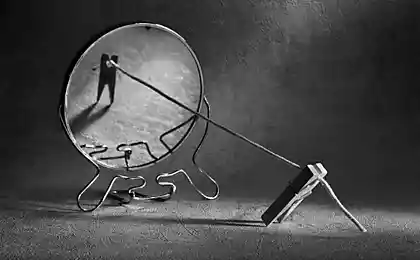170
Self-criticism: How to stop poisoning yourself

Excessive self-criticism is one of the most insidious forms of self-destructive attitudes. When the inner voice endlessly repeats “you didn’t do it well enough”, “you’re not smart enough, beautiful enough, successful”, real self-flagellation occurs, destroying confidence and blocking personal growth. We used to think that self-criticism is a sign of modesty and “adequate” self-esteem. But if you do not set healthy boundaries, you can literally start poisoning yourself from the inside, leading to feelings of helplessness and chronic stress.
Modern research by the American Psychological Association (APA) confirms that uncontrolled self-criticism can lead to the development of depressive states, reduce motivation and lead to disruption of interpersonal relationships. At the same time, a person does not always understand that the root of many problems lies in his attitude to himself. As a result, any mistake or non-compliance with high standards is perceived as a personal disaster.
How do you know if your self-criticism is out of control? How to learn to notice negative internal attitudes in time and turn a self-critical dialogue into constructive feedback? In this article, we will look at the nature of self-criticism, analyze when it becomes dangerous, and give recommendations on how to stop “poisoning” yourself with internal reproaches.
Main part
Why is there too much self-criticism?
The roots of increased self-criticism often go back to childhood, when the child used to harsh assessments and criticism from parents, teachers or peers. The psyche remembers such communication scenarios: “you should always be the best, no mistakes”, “if you stumble – this is a sign of weakness”. In adult life, such beliefs can be broadcast to yourself: “I am unworthy, because I do not succeed,” “everything around me is more successful than I am.”
- Comparison with surroundings: Social media and social norms contribute to the fact that we see only the facade of someone else’s “success” and constantly feel inappropriate.
- Idealization of achievements: People with high self-criticism tend to make unattainable plans and blame themselves for the slightest deviation from the ideal.
- Fear of judgment: Fear of “seeming incompetent” generates constant internal monitoring, which results in self-deprecation at the slightest oversight.

When does self-criticism become dangerous?
In a certain form, self-criticism can even be useful: it stimulates development, helps not to stagnate in your comfort zone and learn from mistakes. However, the line between rational reflection and destructive self-criticism is very thin. Here are some warning signs:
- Persistent guilt or shame: You tend to blame yourself not only for real mistakes, but also for circumstances over which you have no influence.
- Reduced motivation: Instead of aiming for a better outcome, you fall into apathy or procrastination for fear of doing “not perfect.”
- High anxiety: Self-criticism goes hand in hand with the expectation of failure, because of which the internal background of anxiety becomes permanent.
- Relationship problems: A self-critical person may “transmit” this criticism to loved ones or, conversely, avoid rapprochement, considering himself unworthy of love.
7 ways to stop self-criticism
1. One of the key mistakes in self-criticism is the confusion of an unsuccessful action and one’s own worth as a person. For example, the phrase “I’m a bad specialist because I failed” is replaced by “I failed to complete the task as planned”. It is important to distinguish between “mistake in a particular situation” and “I am inferior in all areas of life.”
- “I made a mistake, but I am not a mistake.”
- Reframe the internal dialogue: Instead of "I'm incompetent" -- "I need to improve my skill" or "It was a difficult project, it's worth analyzing what went wrong."
2. If self-criticism becomes a habit, the brain begins to “wash up” positive aspects. It is useful to keep a diary where you record any achievements, from small to large. Even “I managed to complete the task a day earlier” or “I ran a kilometer more than usual” is a good reason to notice my progress.
- Make it clear: The more measurable and detailed an achievement is described, the more clearly you realize that you are capable of much.
- Record frequency: Try to record progress daily or at least once a week to form a new cognitive field of positive self-perception.
3. People with high self-criticism often do not know how to accept praise. When loved ones or colleagues say warm words, a filter is turned on inside: “They’re just polite, I don’t deserve it.” Try to stop for a moment and consciously allow yourself to feel pleasant emotions from the approval of others.
- Say thank you instead of saying no. It teaches you to recognize your own worth.
- Analyze the compliment: What specific trait or deed have you earned your praise? This will strengthen the understanding that you are doing something well.
4. Comparison with others is the most nutritious ground for toxic self-criticism. We see other people’s “perfect” images (especially on social media) and begin to feel that we are not up to a certain standard. But this approach deprives you of objectivity. It is much more constructive to evaluate your own progress relative to how you were a year or a month ago.
Ask yourself, “Have I learned new skills?” Am I faster at tasks that used to be difficult? Have I improved my physical fitness or relationship? This kind of positive focus helps you see that you are evolving rather than standing still.

5. Useful criticism is a clear analysis pointing to specific points for improvement without turning to personalities or applying generalizations. Destructive also translates the conversation into the plane of “you are bad”, “you will never do the right thing”. Apply this principle to the internal dialogue:
- Check the argument: If you have clear evidence that you can improve, that's constructive. If it’s just self-titling, it’s destructive criticism.
- Formulate without “always,” “never,” or “at all”: Absolute words often signal that you are in self-blame mode. Try to use “this time”, “in this task”, “in the present circumstances”.
6. Use a “supportive internal critic” Try to imagine that you have “two voices” inside: one is a harsh critic, the other is a benevolent mentor. When the critical voice begins to repress, imagine the “mentor” replying in style: “Yes, there was a mistake, but we can still learn a lesson and move on.” This visualization helps to balance the internal dialogue.
- The objectification effect: You stop identifying with negative thoughts and notice them from the outside.
- Building self-empathy: Teach yourself to talk softly to yourself as you would to a friend.
7. If self-criticism is so strong that you feel “stuck” and do not see a way out, it is useful to consider consulting with a psychologist or therapist. The specialist will help to understand the underlying causes of self-deprecating behavior, develop individual methods to combat it and restore healthy self-esteem.
It is important to understand that professional help is not a sign of weakness, but a way to qualitatively improve your life, getting rid of emotional burden.
Conclusion
Self-criticism can be an important tool for growth and development if it is balanced and constructive. However, when this tool is turned into a weapon of self-destruction, any mistake begins to seem like a disaster, and the desire for perfection turns into paralyzing perfectionism. In such a situation, you risk losing not only faith in yourself, but also the joy of life, the ability to fully communicate with others and move forward.
The main task is to recognize these destructive patterns and learn to replace them with constructive ones. There are different techniques, from a success diary to creating an image of an inner mentor, from limiting comparison with others to accepting sincere praise for yourself. Any of them can bring noticeable relief and gradually cultivate a careful attitude to their own mistakes.
Remember, you don’t have to be perfect. Mistakes are part of the natural path, and a critical view of oneself should not destroy, but only help to correct course. Freed from the tyranny of self-criticism, you will gain access to your true potential, be able to soberly analyze failures and still maintain confidence and inner harmony. Start now – stop poisoning yourself, become your ally and move towards a happier and more fulfilling life.























